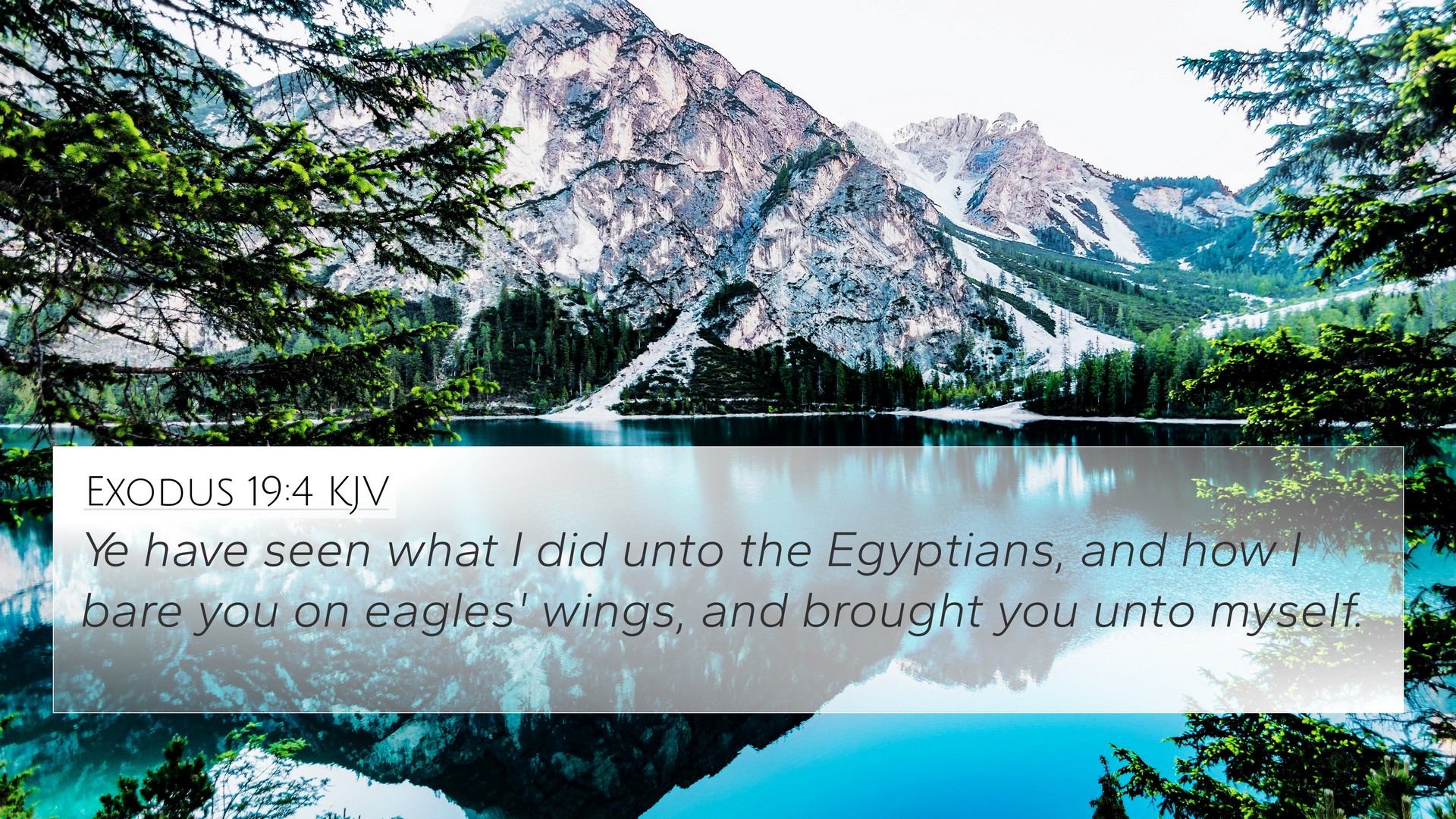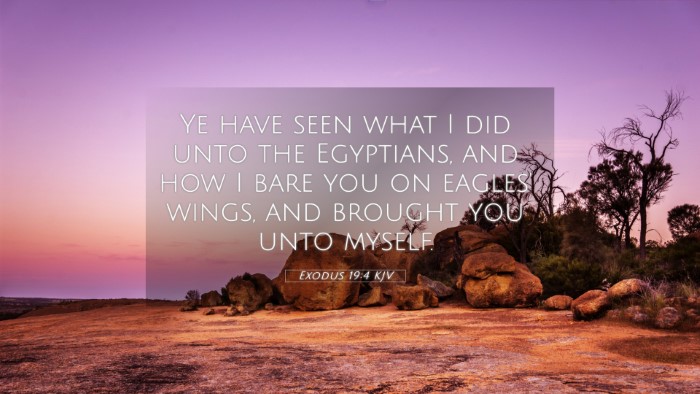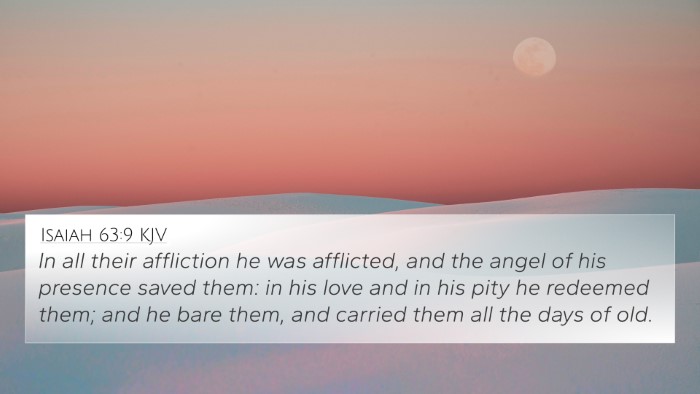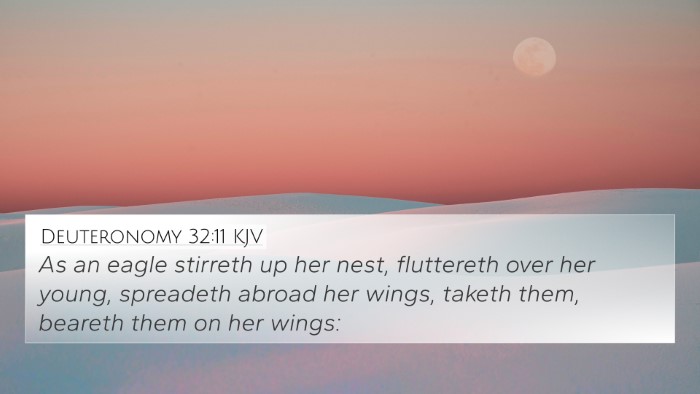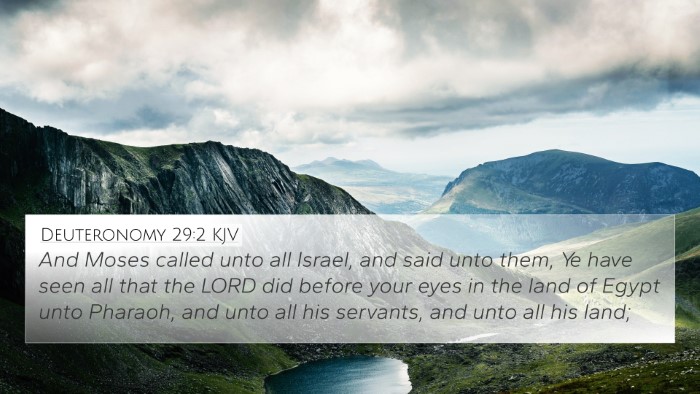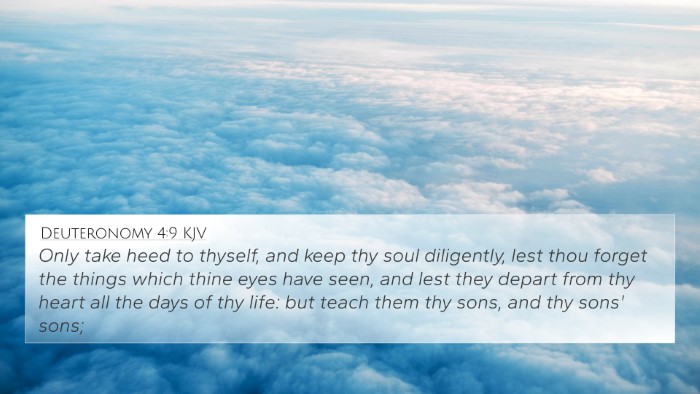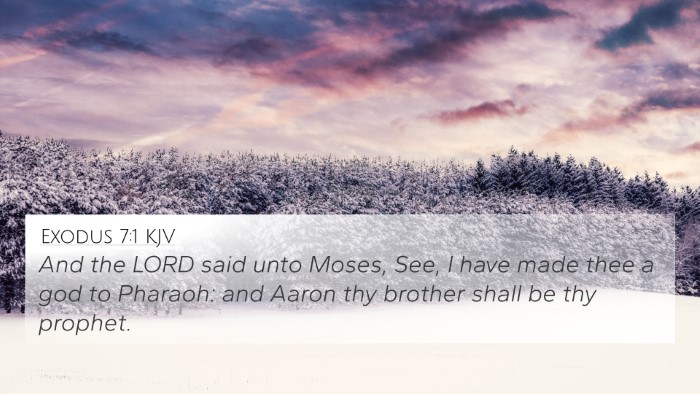Understanding Exodus 19:4
The verse Exodus 19:4 states, "You have seen what I did to the Egyptians, and how I bore you on eagles’ wings and brought you to Myself." This passage is packed with meaning, encompassing themes of deliverance, divine care, and covenant relationship. Below is an analysis of the verse combining insights from public domain commentaries.
Contextual Background
The context of Exodus 19:4 lies in the foundational moment when God prepares the Israelites for their covenant at Mount Sinai. After deliverance from Egypt, the Israelites are reminded of God's powerful act of salvation and His ongoing relationship with them.
Key Themes and Insights
- Divine Deliverance: The phrase "what I did to the Egyptians" refers to the plagues and the parting of the Red Sea, fundamental acts of God's deliverance. Matthew Henry emphasizes how God's might was displayed in freeing the Israelites from slavery.
- Eagle’s Wings: The metaphor of being borne on "eagles' wings" suggests God's tender and powerful care. Albert Barnes notes that eagles care for their young by lifting them high, symbolizing God’s protective and nurturing nature toward His people.
- Covenantal Relationship: The latter part of the verse, "brought you to Myself," indicates an invitation into a covenant relationship. Adam Clarke highlights that God desires connection and communion with His creation.
Bible Verse Cross-References
In understanding Exodus 19:4, it is valuable to look at its connections with other scriptures that reinforce its themes:
- Deuteronomy 32:11-12: Similar imagery of God’s care likening His guidance to that of an eagle protecting its young.
- Isaiah 40:31: This speaks of those who wait on the Lord being renewed in strength, akin to the uplifting strength described in Exodus.
- Psalms 91:1-4: This psalm emphasizes dwelling in God’s presence and His protection, reinforcing the nurturing aspect of God mentioned in Exodus.
- Hosea 11:1: God’s call of Israel as His son reflects the intimate relationship He seeks, connected to the theme of deliverance.
- Galatians 4:26: The concept of God's people as a holy city parallels the chosen nature of the Israelites described in Exodus.
- Romans 8:31: This verse echoes the victorious nature of God for His people, similar to how He overcame Egypt for the Israelites.
- 2 Samuel 22:31: Depicts the trustworthiness of God’s ways, invoking themes of protection akin to those in Exodus.
- John 10:27-30: Jesus refers to His followers as His sheep, reinforcing the intimate relationship aspect of God's people.
- 1 Peter 2:9: Highlights the chosen nature of believers, extending the covenant relationship seen in Exodus to the New Testament believers.
- Hebrews 8:10: The promise of a new covenant resonates with the intentions presented in Exodus regarding God's people being set apart.
Comparative Bible Verse Analysis
When engaging in bible verse cross-references and thematic Bible verse connections, the relationships across the scriptures indicate an interconnectedness that enriches our understanding. Observing how various texts illuminate the same themes provides a deeper comprehension of God's nature and intentions.
Scriptural Cross-Referencing Techniques
Employing tools for bible cross-referencing can enhance study experiences. Here are some methods to effectively discover connections:
- Bible concordance: An essential resource to find words and phrases.
- Bible cross-reference guide: Helps identify verses that expand on the concepts introduced in a primary verse.
- Cross-reference Bible study: Using study Bibles that include cross-references in the margins to facilitate deeper analysis.
- Bible chain references: Following a chain of verses that are thematically linked for comprehensive insights.
Conclusion
Exodus 19:4 stands as a powerful reminder of God's deliverance, care, and desire for relationship with His people. By examining this verse alongside its cross-references, we appreciate the unity within Scripture and its ability to speak across generations. Utilizing comprehensive Bible cross-reference materials allows deeper explorations into how God’s Word interacts and reveals His character and purposes.
